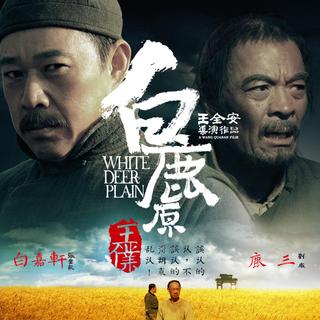
介绍:
White Deer Plain is a controversial movie.
No doubt part of the controversy is inherited from the original novel written by Chen Zhongshi in 1993. The 1990s is an age when Chinese writers were testing the extent of the country's reform and opening-up in literature, and realist writer Chen, along with other writers who were equally bold with erotic descriptions, were believed to have pushed the limit.
But there is more to Chen's work than lonely village wenches. In his voluminous novel the Shaanxi writer offered an elaborate description of a Chinese village in the early 20th century, a period of time when China witnessed dramatic changes. The story is so complex and insightful that many famous directors have fancied adapting it, yet none of them came up with a script that does justice to the original work. Well, none but one, director Wang Quan'an, who spent seven years rendering the novel into a film and in the end started more controversy regarding his creative output.
At least one other critic did an in-depth analysis on all the possible focuses that a film director could have used in the adaptation, and argued for what he believed would have been the best approach. However, I shall invoke my privilege as a viewer who's never read the original novel, and assess the movie for what it is.
But before that, there are still odds to be settled. To please different audiences, the director has fathered multiple versions: a 220 minute version to realize his artistic aspiration and make every cent of the 100 million yuan investment count; a 188 minute version for the Berlin International Film Festival; and a 156 minute version for the movie approval authority and moviegoers. This puts me in a rather difficult situation because if I fail to identify the version that I'm evaluating, some resourceful viewer might argue that another version is not exactly like this piece.
Well then, with all the controversies specified, let's have a look at the 156 minute version that is available to most ordinary viewers. I think almost all viewers could agree that the film is visually fantastic. Wang Quan'an studied painting as well, so the director of White Deer Plain is just as skillful at delivering breath-taking spectacles, making each shot a well organized picture, portrait or landscape.
Story-wise, it is really hard to get the message because the narrative is broken and inconsistent, but through reasoning and code-breaking, I guess the director intents to highlight the traditional values in rural China under the threat of a rapidly changing society. In this sense, he gives excellent presentation of Shaanxi local music, enough to impress the judges at Berlin. But when it comes to characterization, the 156 minute version creates too many loose ends, as leading characters are left unaccounted for by the closing credits.
Nonetheless, the director's effort is commendable, once you sit in the cinema looking at the remarkable spectacle, you won't even notice that you are struggling to make sense of the broken story. Despite all the controversies and inconveniences, I give White Deer Plain a six out of 10.
大家还在听

